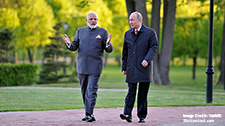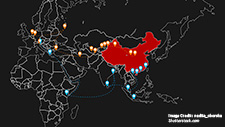How the U.S. Promotes Extremism in the Name of Religious Freedom

Svante E. Cornell, S. Frederick Starr and Brenda Shaffer
On July 26, U.S. President Donald Trump announced his nomination of Kansas Governor Sam Brownback as U.S. ambassador at large for international religious freedom. The position was created by the International Religious Freedom Act of 1998, which also established the U.S. Commission on International Religious Freedom (USCIRF), with whom the ambassador’s office closely cooperates. President Trump and members of Congress will appoint new commissioners to the USCIRF in 2018. The commission reports on global violations of religious freedom and makes recommendations to the president and the State Department for action, including sanctions.
Despite Congress’ best intentions, the USCIRF has strayed far from its mandate. In its 2017 report, the commission effectively supports the right of Islamist extremists to operate in several Muslim-majority countries, Iranian mullahs to spread radicalism abroad, and hardline Islamist organizations to receive foreign funding. It also castigates policies that promote secularism, such as bans on headscarves for girls in public schools. In its quest to protect freedom of religion, the USCIRF is championing the rights of groups that aspire to impose religious coercion on others.
Related Publications
-
ISDP Annual Report 2023
ISDP’s Annual Report for the year 2023. We look back on 2023, a year in which tensions and conflicts captured the strategic space in ISDP’s focus areas, making headlines around […]
-
Promise And Peril In The Caucasus
America’s national security bureaucracy separates the Caucasus and the Middle East into different bureaus, with Central Asia in yet another office. This is part of the reason the U.S. has […]
-
The Limitations of India and Russia’s Transactional Relationship
Since Russia’s unprovoked invasion of Ukraine in February 2022, it might seem as though ties between India and Russia have strengthened. While much of the West isolated Russia, India-Russia energy […]
-
IN DEFENSE OF THE LIBERAL INTERNATIONAL ORDER
In recent years, the geopolitical fight for global economic, diplomatic, and institutional control has acutely intensified, accentuating the crisis in the existing post-World War II Liberal International Order (LIO), championed […]
-
China in Eurasia: Revisiting BRI amidst the Russia-Ukraine Crisis
This paper discusses China’s trade and connectivity plans under the Belt and Road Initiative (BRI) in the Eurasian region and the impact of the Russian invasion of Ukraine on Chinese […]




